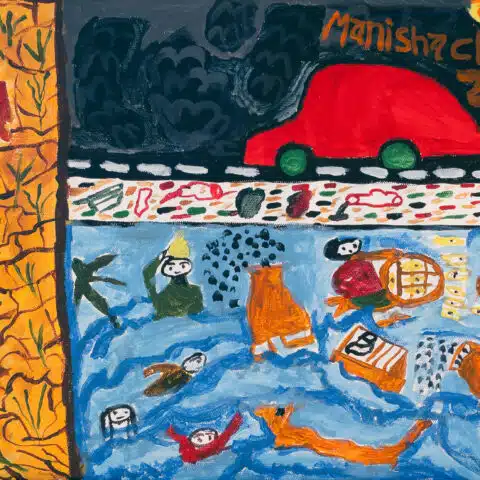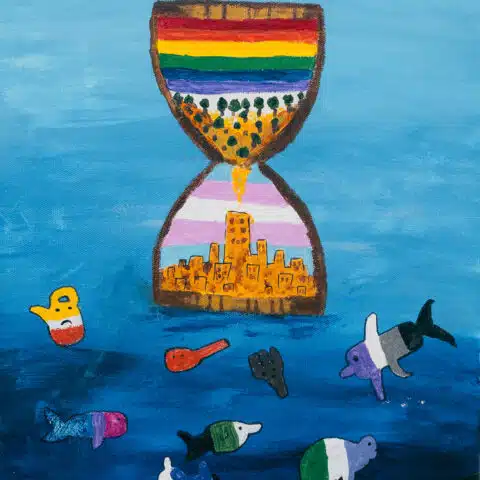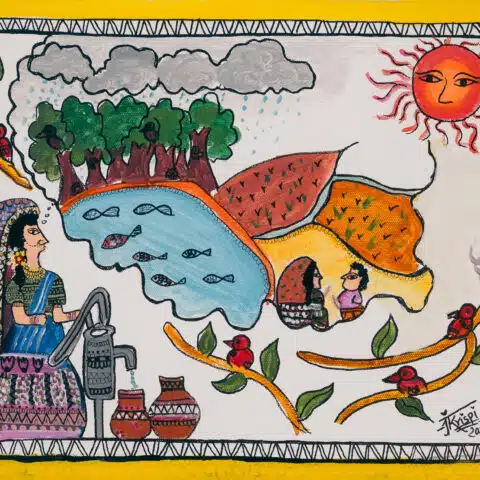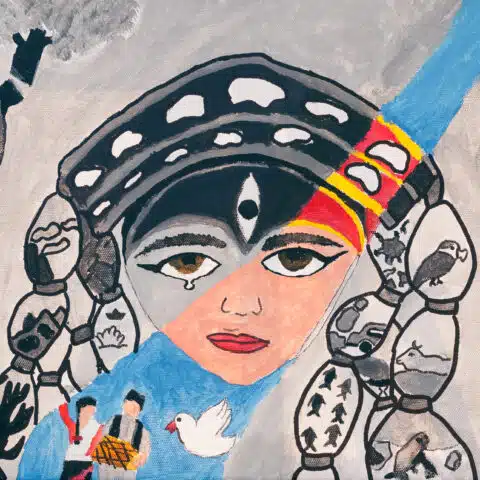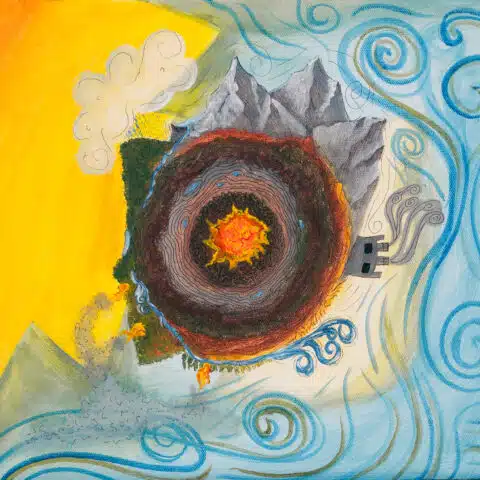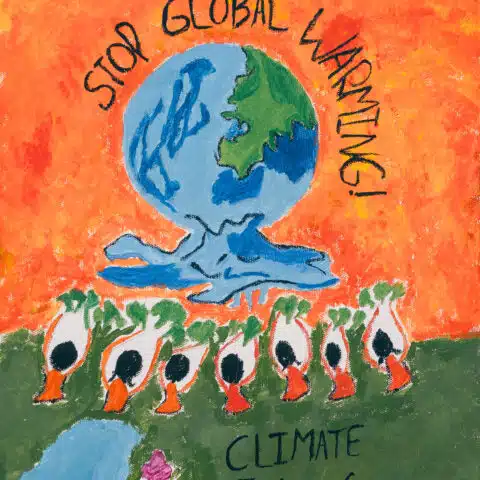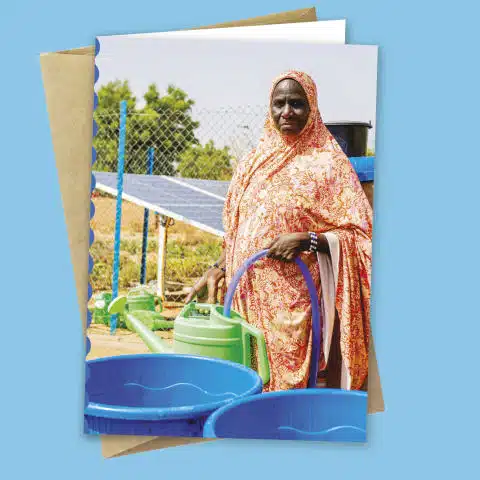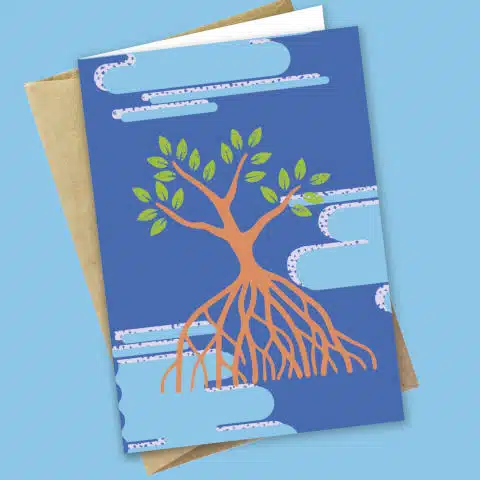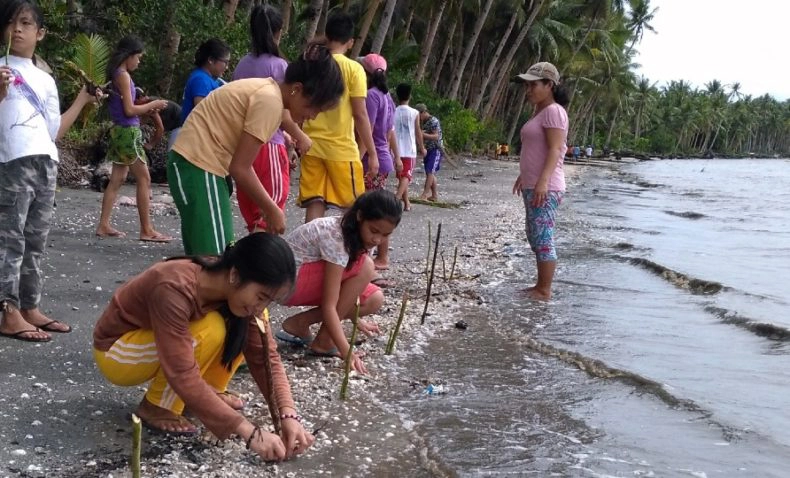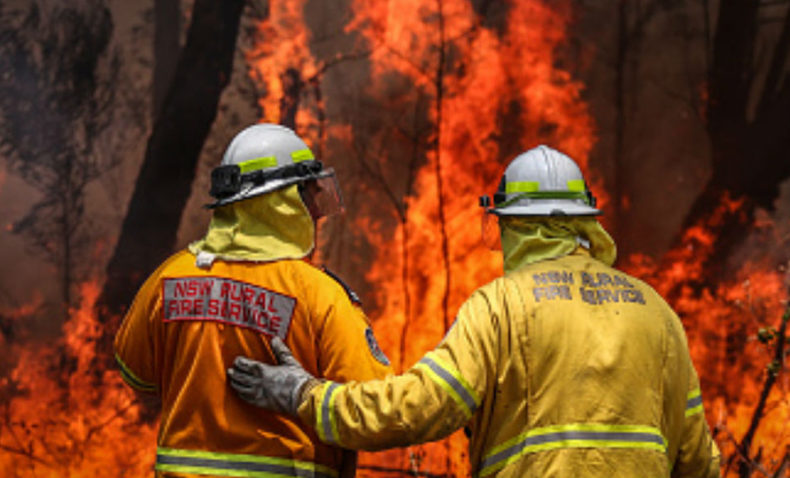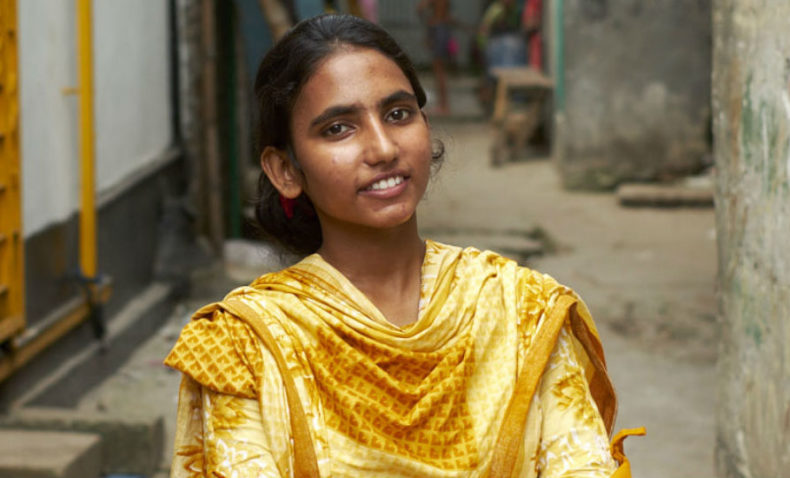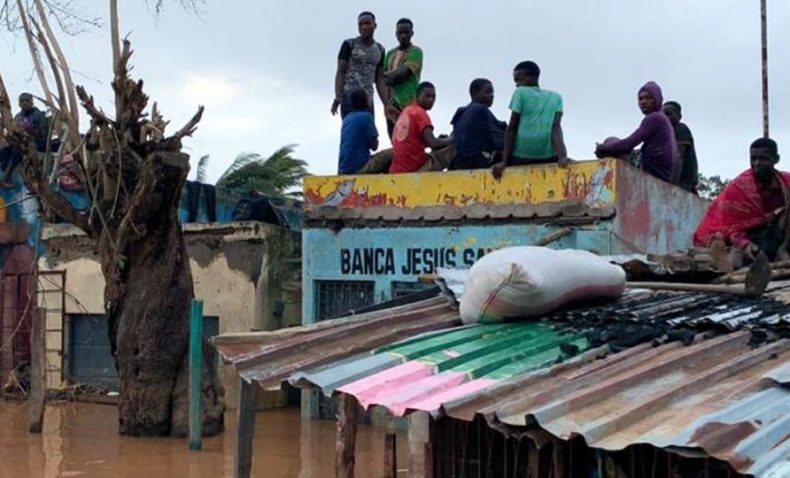We’re working with communities to build climate resilience
Plan International works across south-east Asia and the Pacific to help communities adapt to climate change, to make sure children, women and marginalised groups are involved to help shape the design of our projects.
These projects include planting vegetable gardens at school using climate-resilient seeds, and mangrove or tree-planting to protect coasts from floods and storms. We’re also working with communities to improve farming practices and to prepare for and to respond to disasters. We reach children and adults through games, school-curriculum and community outreach.
Climate change magnifies gender inequality. That’s why climate action must include girls.
Educating girls is one of the most effective, and most overlooked, ways to mitigate climate change. In fact, for every year a girl stays in school, her country’s climate resilience measurably improves.
But unfortunately, climate change magnifies the inequalities girls and women already suffer, such as their unequal access to health, sexual reproductive health and rights, education, participation and protection.
In times of crisis, girls are the first to drop out of school to help their families earn money, to tend to domestic duties or look after relatives, and they face an increased risk of exploitation and abuse.
Using art as a powerful tool for change
Art is a powerful tool for activism that allows artists to express their opinions and advocate social and political change.
In Nepal, which is one of the most vulnerable countries in the world to climate change, twenty young activists worked together to create a vibrant exhibition with the aim of raising awareness about the adverse affects of the climate crisis and the need to take action to save our planet before it’s too late.
Girls are the first to drop out of school, becoming pregnant, or marrying early when their families and communities are affected by crises. Girls, women and young people must be given a bigger say in climate policy, so they can help shape the world around them.- Swastika, 20.
The art displayed serves as poignant visual representation of the challenges articulated by the youth activists. Their creative expression echoes the urgent need to address the climate crisis and safeguard children’s fundamental right to education, particularly girls and young women.
These paintings took centre stage at the launch of our new report For Our Futures: Youth Voices on Climate Justice and Education which sheds light on the profound impact of the climate crisis on access to education for girls and young women in three countries across the Asia Pacific region.
This is how climate change is already impacting girls:
- As water and firewood become less accessible, girls spend more and more time collecting these essentials for their families, putting them at risk of violence and increasing the likelihood of them missing out on school
- Girls’ education is often the first thing families sacrifice when financial resources are in short supply
- Girls are at greater risk of child marriage when their families face economic hardship, leaving millions of girls at risk of sexual and physical abuse, early pregnancy and maternal death
- For girls and young women forced to leave their homes – because of a lack of natural resources or access to the income they need to survive – there are multiple challenges to face, including a much higher risk of exploitation, as well as the loss of their education, community support and livelihoods.
Photo: Samira, 14 at her school in Zambia’s Central Province. © Plan International
While climate change exacerbates gender inequality and is on track to reverse crucial gains, climate action can be a pathway to greater equality and improving the rights of girls, if their needs and voices are included. We know that promoting girls’ leadership, and their political empowerment, supports them in accessing their rights, in gaining knowledge and skills, and influencing important decisions around climate change.
Studies also show that female leaders are incredibly effective in conservation and protection efforts, and are more likely to pursue more sustainable futures for their communities.
Our research
Want to learn more? Read our latest climate change reports.
Supporting youth leadership in climate action
The unravelling climate crisis is the most pressing injustice of our time as it exacerbates existing inequalities in society, and disproportionately affects girls and young women.
Youth-led and youth-supported groups are boldly advocating for solutions that are more responsive to the needs of everyone, as shown in our report, Rising Tides.
Released in February 2022, in partnership with Plan International Finland and supported by nine other Plan International offices, Rising Tides is a global research report bringing together important findings from young researchers and youth groups from nine countries bearing the brunt of the climate crisis.
Eleven young researchers from Myanmar, Laos, Solomon Islands, Fiji, Indonesia, Ethiopia, Uganda, Mozambique and Zimbabwe conducted a joint desk review of climate change policy to identify youth-led or youth-oriented organisations, groups, and movements for climate change adaptation.

